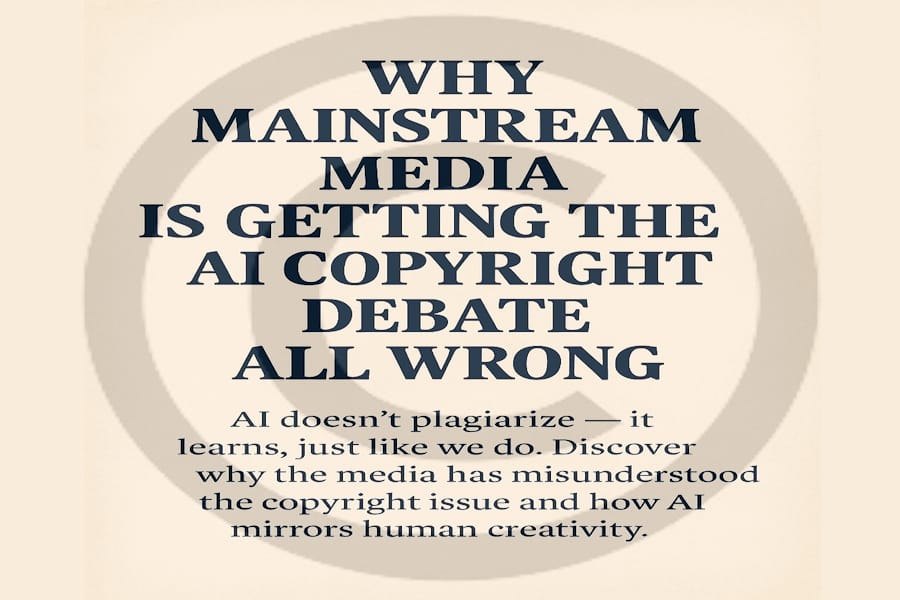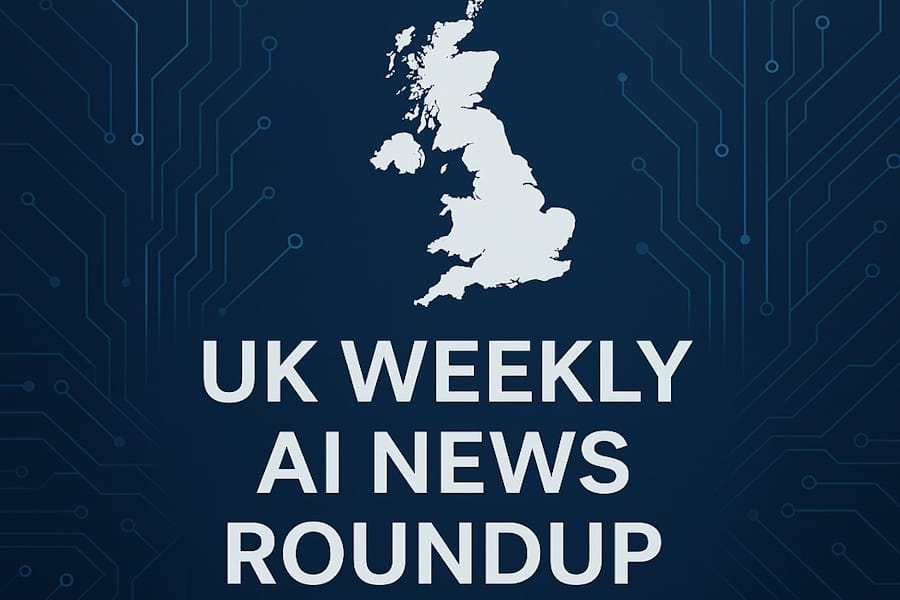Why Mainstream Media Is Getting the AI Copyright Debate All Wrong

Publish Date: Last Updated: 30th June 2025
Author: nick smith- With the help of GROK3
View a YouTube video short on this article
When I was at school, like millions of others, I was told to study a subject, read the relevant books, and then write a report on what I’d learned. That report had to be original. It couldn't be a copy of what I’d read. But it also couldn’t come from nowhere — it had to be informed by those texts.
In essence, I was learning from existing knowledge and using it to generate something new, personal, and meaningful. The only caveats were: don’t plagiarize word for word, cite your sources, and put it into your own voice.
Sound familiar?
That’s exactly how AI works. And yet, somehow, the mainstream media has twisted this process into a “copyright crisis.” But what if we’ve misunderstood the issue entirely?
Understanding the True Nature of Learning — Human or Artificial
Let’s take a step back. Every student across the world, right now, is producing work based on the same pool of human knowledge — from biology to Shakespeare. Millions of essays on the same topics. Overlap is inevitable. Patterns will repeat. But no one accuses students of theft unless they directly copy-paste.
So why is it different when it comes to AI?
When I use AI to help me create an article or a piece of art, it is working like a student. It draws upon what it has learned, combines it with my prompts, and produces something new. If I inject my thoughts, my structure, my interpretation — then I’m not simply copying. I’m building.
AI Doesn’t Plagiarize. It Synthesizes.
Here’s the truth: AI is not scraping the internet and regurgitating content word-for-word. It’s not storing paragraphs and dishing them back out on command. What it does is abstract ideas and synthesize patterns from a vast range of inputs — the same way our brains do.
That synthesis is what makes human creativity so powerful. We are all standing on the shoulders of giants. No writer, artist, or musician works in a vacuum. Picasso studied and echoed African tribal art. The Beatles borrowed from American blues. Shakespeare himself adapted stories that were centuries old.
Would we accuse them of copyright infringement today? Of course not.
If AI Learns Like Humans, It Needs What We Needed: Access
For AI to be truly useful, it needs access to humanity’s collected knowledge — books, art, research, journalism, philosophy, culture. Not to copy it. Not to steal it. But to learn from it. To interpret it. To help us generate new knowledge in partnership with a machine that can learn faster than we ever could.
If we restrict that access — out of fear or misplaced ownership — then we are effectively asking AI to work in the dark. Imagine a student being told they can only learn from books written after 2024. Or an artist who is banned from looking at any paintings before the 21st century. That’s not how we evolve.
Authors and Artists Should Be Proud to Inspire AI
Here’s an uncomfortable truth for some: If AI is trained on your work, it’s because your work matters. It was considered valuable enough to become part of humanity’s collective learning corpus. That’s something to be proud of — just as an author might be proud to see their book cited in a university paper, or an artist might smile to see echoes of their style in a new generation of painters.
Influence is not theft. It’s legacy.
If you’re an author, musician, journalist, or creator — ask yourself this: would you rather live in a world where your work inspires the next generation of minds (human or machine), or one where your work is locked away in a vault, never referenced, never echoed, never evolved?
Toward a Fairer, Smarter Copyright Future
This doesn’t mean creators shouldn’t be credited or compensated — they should. We can and should build systems where the value of creative contributions is respected. But we must also acknowledge the difference between inspiration and infringement. Between learning and copying. Between plagiarism and progress.
AI is not a plagiarist. It is a student. A tool. A collaborator. And like any of us, it needs the wisdom of the past to help build the future.
Let’s not allow fear to suffocate the potential of one of the most powerful learning tools humanity has ever created. Let’s get the copyright conversation back on track.
Latest AI News Articles
AI Questions and Answers section for Why Mainstream Media Is Getting the AI Copyright Debate All Wrong
Welcome to a new feature where you can interact with our AI called Jeannie. You can ask her anything relating to this article. If this feature is available, you should see a small genie lamp above this text. Click on the lamp to start a chat or view the following questions that Jeannie has answered relating to Why Mainstream Media Is Getting the AI Copyright Debate All Wrong.
Be the first to ask our Jeannie AI a question about this article
Look for the gold latern at the bottom right of your screen and click on it to enable Jeannie AI Chat.





